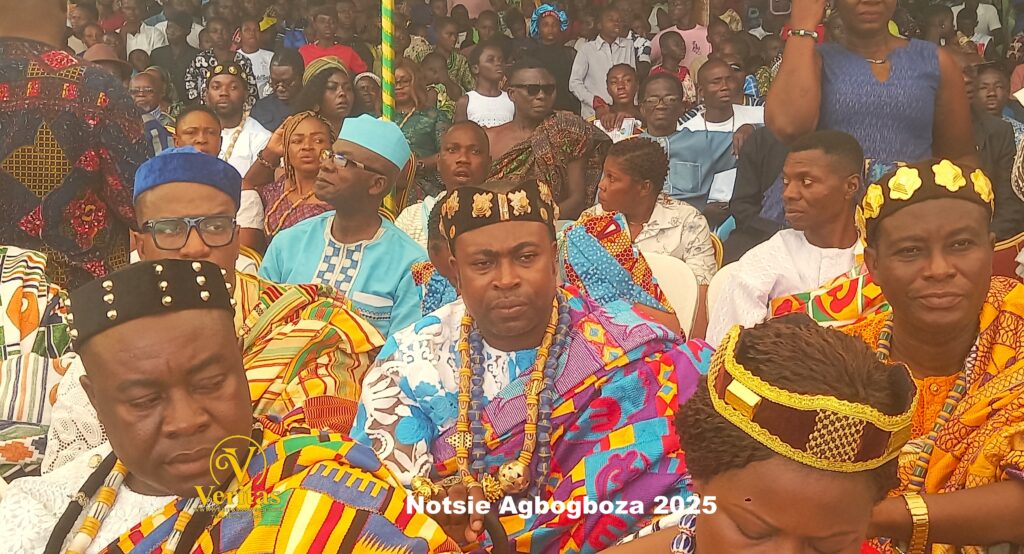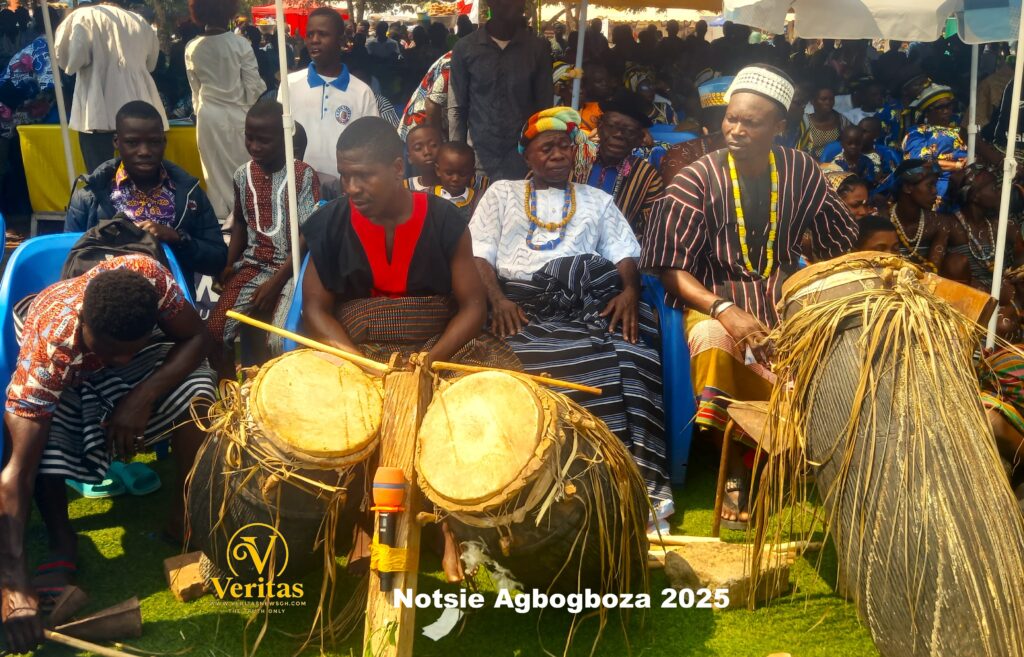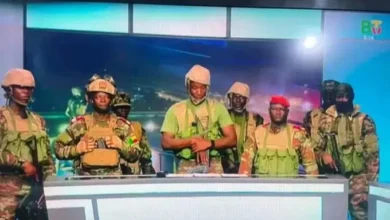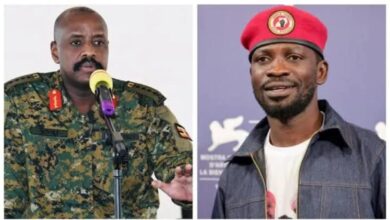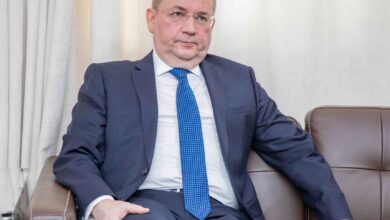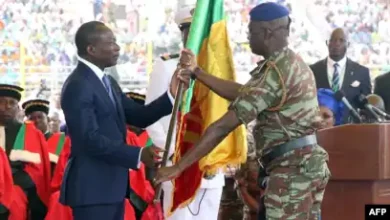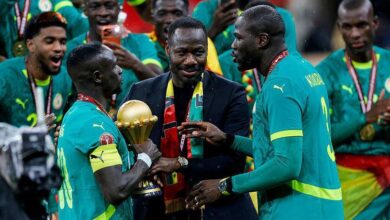Anlo, Asogli call for Ewe unity at 2025 Notsie Agbogboza
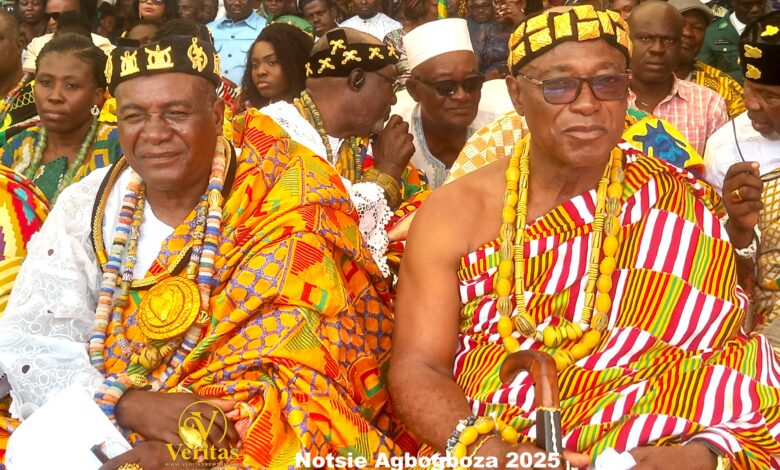
Calls for stronger unity among the Ewe people rang out during the 69th Agbogboza Festival in Notsie on Saturday, as chiefs and delegations from Ghana, Togo, Benin, Nigeria, and the diaspora gathered to commemorate the historic 17th-century exodus of the Ewes.
The Agbogboza, held annually on the first Saturday of September, is the most significant traditional festival of the Ewe people. This year’s celebration featured colourful cultural displays, including drumming, Agbadza and Borborbor performances, alongside traditional rituals led by chiefs and priests.
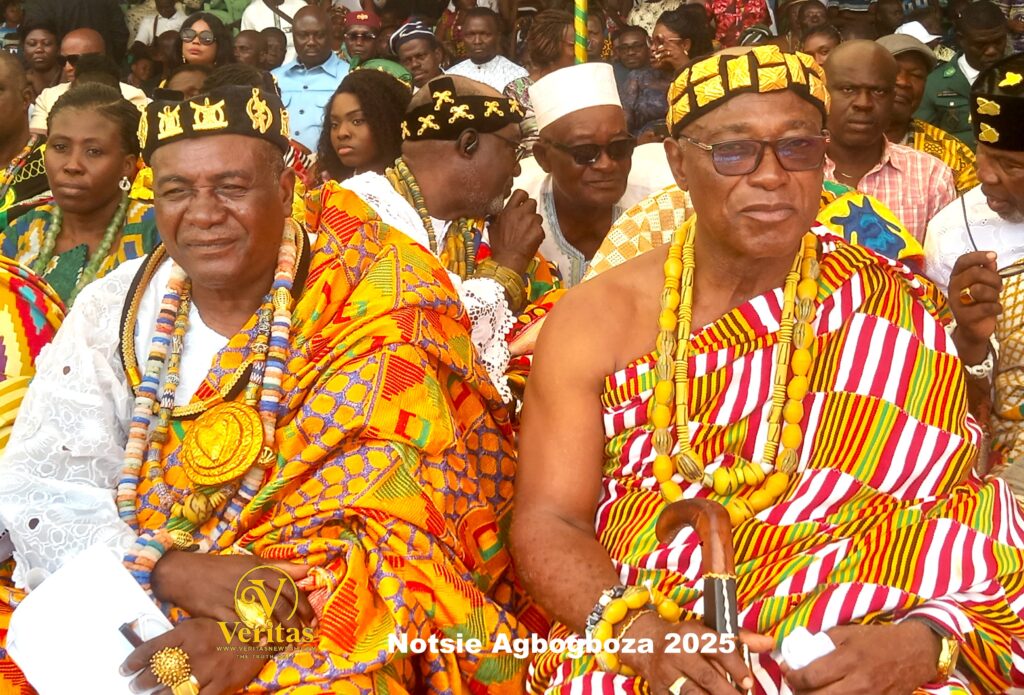
The Ghanaian delegation was represented by the Anlo and Asogli people. The Awoamefia of Anlo, Togbi Sri III, represented by Togbi Aflah Awunor Detu IX, reminded participants that Agbogboza is not just a cultural event but “a call to destiny.”
“We are honoured as Anlo people to participate in this festival every year. Agbogboza reminds us of our shared history and calls on all Ewes to unite around a common destiny that can foster development for our people,” he said.
Togbi Sri also invited the Notsie delegation to join this year’s Hogbetsotso Festival of the Anlo, scheduled for November 1 at Anloga in Ghana’s Volta Region.
The Anlo delegation included prominent chiefs such as Togbi Zewu IV of Anloga, Togbi Joachim Acolatse IV of Kedzi, Togbi Kadzahlo IV of Anlo-Afiadenyigba, Togbi Ahormene of Tegbi, and Togbi James-Ocloo VI of Keta, along with queen mothers and other leaders.
In an interview with the Ghana News Agency, Togbi Zewu IV stressed the need to invest in heritage initiatives.
“He who abandons his past cannot secure a good future. If we want peace and prosperity in Anlo, then we must connect to our history for our ancestors’ blessings,” he said.
From the Asogli State, Togbe Afede XIV, Agbogbomefia, represented by Togbe Kasa III of Ho-Ahoe, cautioned against reducing festivals to mere merrymaking.
“Let us not make these beautiful festivals mere events of celebration. They must be platforms to rally all Ewes together, to strengthen our unity and build a collective force for progress,” he emphasised.
Togbe Afede also invited participants to this year’s Teza (Yam Festival), to be celebrated in October. Members of the Asogli delegation underscored the urgency of unity, noting that conflicts in some Ewe communities highlight the need for solidarity and empowerment.
The delegations of Anlo and Asogli—two historically influential Ewe groups—framed the festival as a crossroads for the Ewe nation. Their joint message was clear: unity is no longer optional but essential for the survival, development, and self-determination of the Ewe people across Ghana, Togo, Benin, Nigeria, and the diaspora.
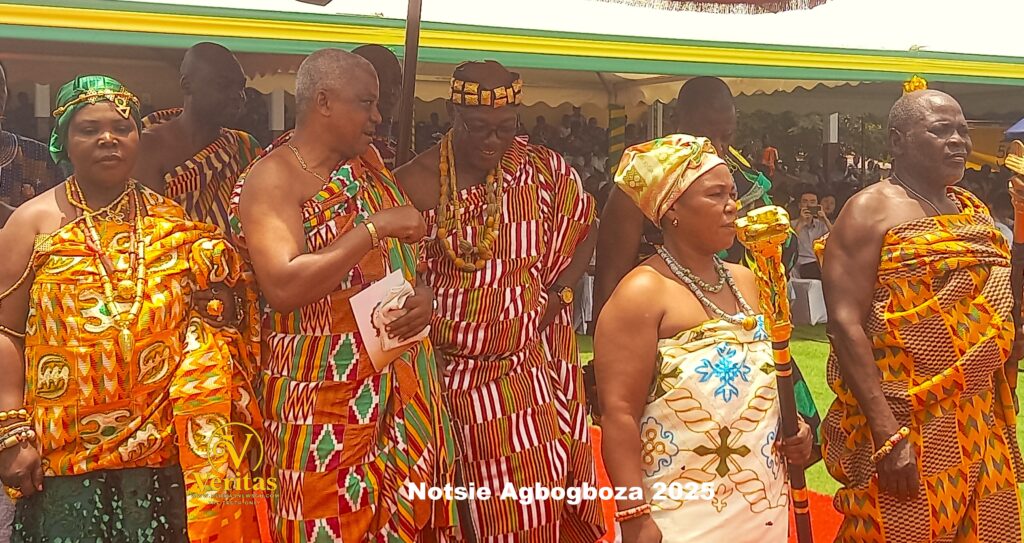
Other dignitaries, including Torgbui Adela Aklasu X, representing Togbi Agorkorli IV, and Togolese Minister Gilbert Bawara, also stressed peace, heritage, and government support. But it was the voices of Anlo and Asogli that stood out, carrying the central message that the future of the Ewe lies in transcending divisions and embracing common heritage.
The Agbogboza Festival, with its blend of music, tradition, and cultural exchange, is more than a commemoration—it is a rallying point for Ewe unity and a vision of shared destiny.
After migrating from Notsie, the Anlo people settled along Ghana’s coastal belt between the Volta estuary, the Atlantic Ocean, and the Keta Lagoon, establishing towns such as Anloga, Keta, Anyako, Klikor, Agbozume, Akatsi, Weta, Ave, Penyi, and beyond.
The Asogli people established themselves along the mountain ranges and valleys of northern Volta, with communities including Ho, Ahoe, Akoefe, Takla, Bankoe, Sokode, and Klefe.
Other Ewe sub-groups are dispersed throughout Ghana’s Volta Region, united by a shared history that continues to find expression in the Agbogboza Festival.
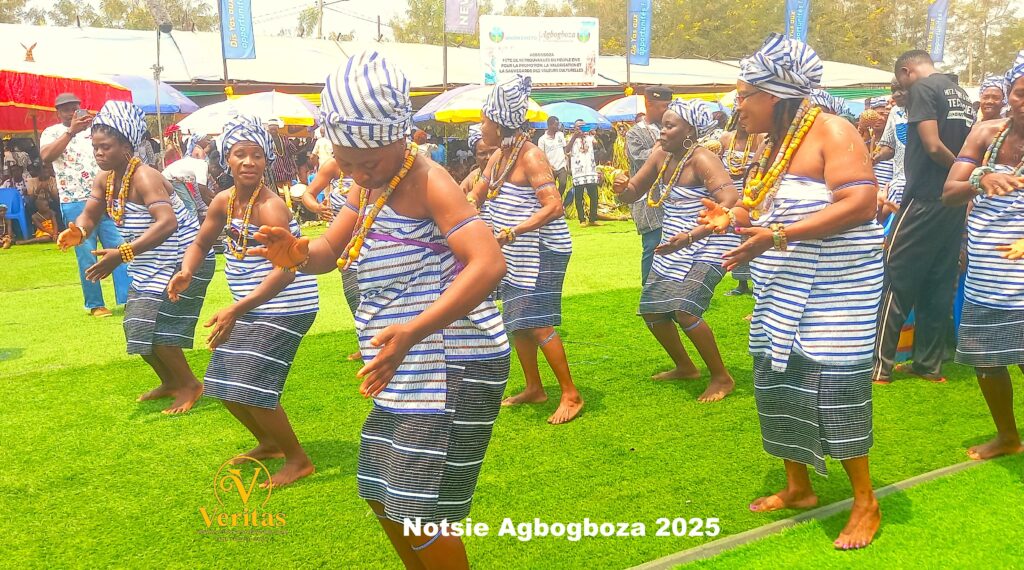
Credit: Benard Worlali Awumee (GNA)
